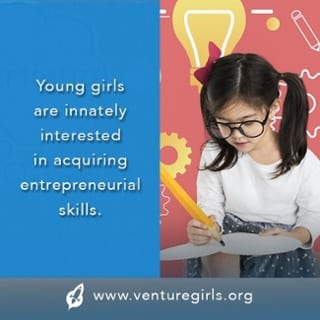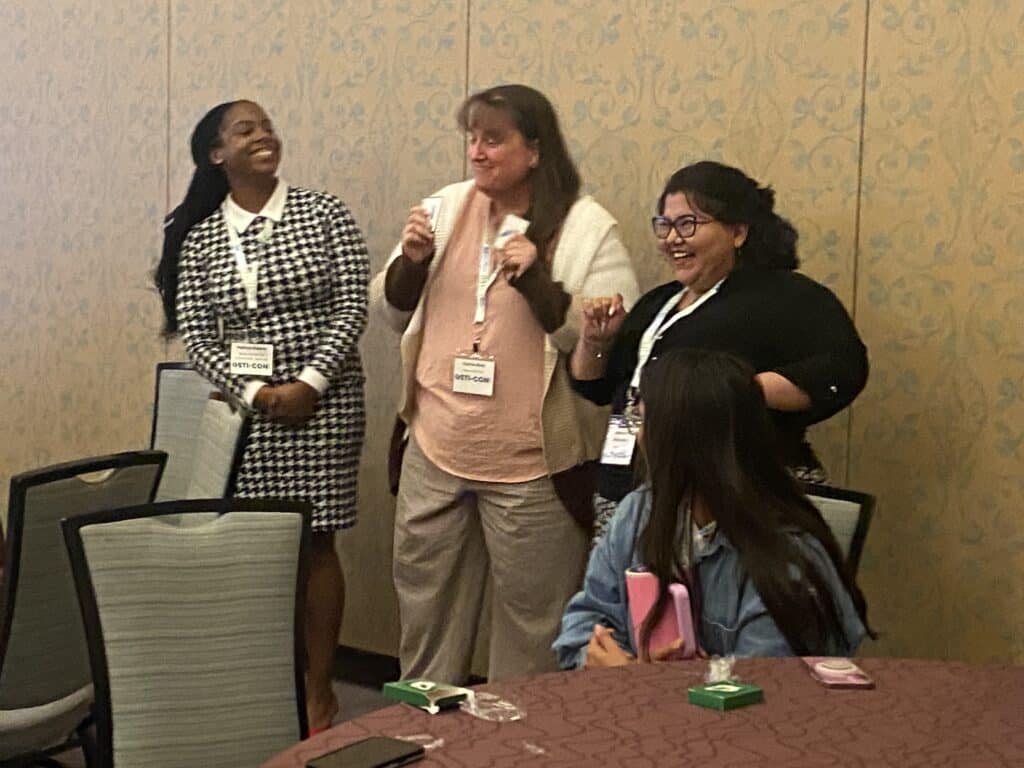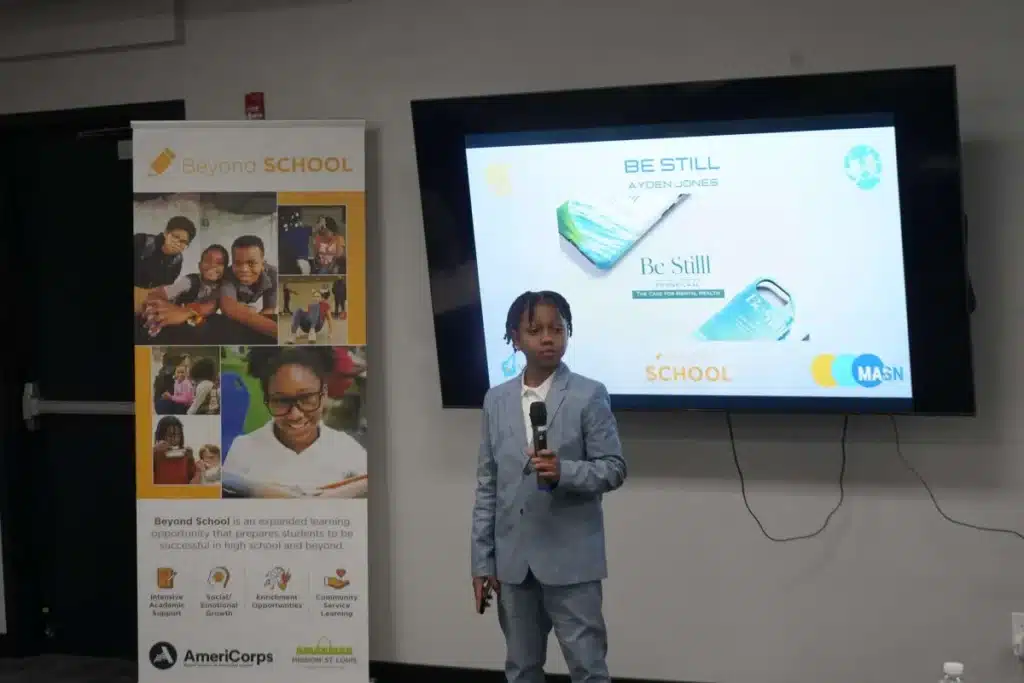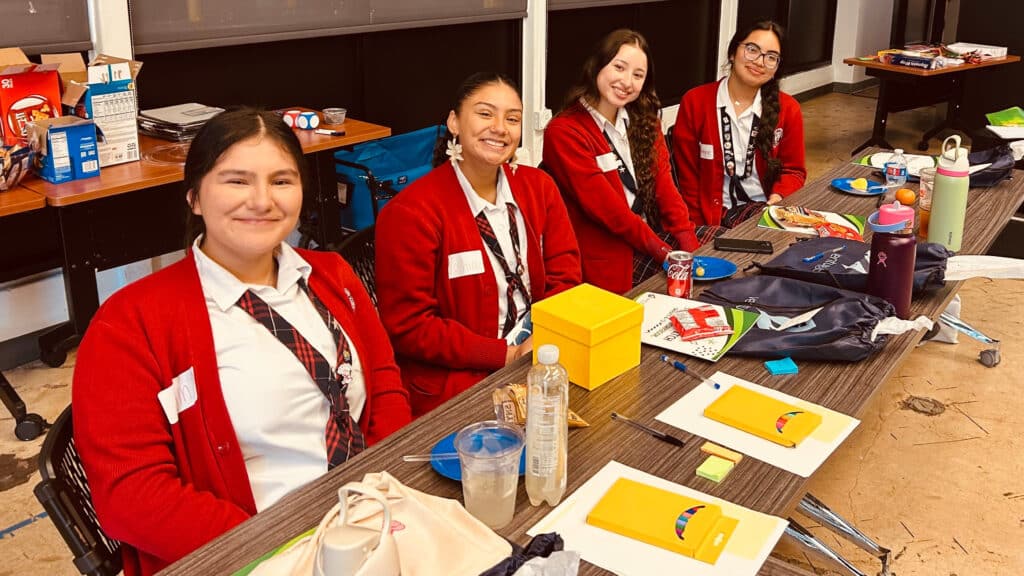Most 5-year-olds have not yet been to school, and don’t yet understand what it is to make a failing grade. What better time to introduce them to the entrepreneurial skill of learning from successive failures?
Testing, trying, failing, rethinking, adjusting, failing again, wisely—this cycle is designed into Entrepreneurship 101 for 5- to 7-year-olds. We ensure that children do not experience failure as something to fear or avoid. Even the most improbable of ideas gets a serious consideration. Say children want to try to attach a wheel to their prototype—a mobile dog food bowl. They laugh when it falls off, and concentrate on a different approach a minute later.
Frankly, it’s often easier to work with 5-year-olds than 12-year-old perfectionists who have spent years conditioned to choose low-risk projects with less chance of failure and who stress out when things don’t work. I enjoy the challenge of breaking this fixed mindset with older girls—but why should we have to “break” anything? All the more reason to start early, start young.
Are young girls innately interested in acquiring entrepreneurial skills? I think so. They are curious and receptive. They have fun and they are serious about it. I’m generalizing from hundreds of observations that tell me that at age 5, children are ready for age-appropriate lessons. They gain a sense of competence. It is a foundation for understanding economics and civics—big concepts for 5-year-olds, and why not?
Girls accompany their parents to grocery stores and see things for sale. At dozens of children’s museums around the world, one of the most popular perennial exhibits is the grocery store where kids get to load up baskets and ring up “sales” at the “cashier.” Which leads to such transactions as this one:
Girl: I’m selling cakes. Do you want to buy one?
Parent: Yes. May I buy that one?
Girl: Yes. It is $50. That is one penny.
Why not go further and unlock the mystery of how products are conceived and how they make it to the store shelves? Let’s give girls the advantage of a curious, entrepreneurial mindset to view the world and secure their confidence at the onset of their formal education.
Entrepreneurial education is not about imparting a list of skills on an entrepreneurial checklist. It’s about guiding girls to develop a growth mindset for life…becoming a creative problem-solver.

When we listen to girls, we can learn so much about their minds and motivations. At age 6, one girl in a VentureLab class voiced an exciting new plan for her future. “I have a wonderful idea,” she said. “We can catch some possums! We can ask Dr. Caron to catch them in his trap. Then we can build a nature center. [Sadly] Mommy, I won’t see you as much because I will be at the nature center. [Brightly] You can make me an outfit and a leash. You can make me a cute skirt, and I can walk people around our nature center. Can we build it when we go home today?”
The best answer? “Yes, and…”
Improvisational performers don’t shoot down ideas. They play off ideas. If a girl says, “I want to build a ladder tall enough to touch the stars,” then go with it. See where the conversation leads. Bubbling enthusiasm is easy to shoot down, and too many “hits” will cause girls to turn off their imaginations.
A girl who feels empowered might even imagine solutions for children around the world. For example, one girl who was told that some children in Bangladesh cannot go to school and instead are forced to work in dark, crowded factories sewing clothes twelve hours a day, thought about this situation and said, suddenly, “I know! We can send them some fabric so they can sew tiny little disguises for themselves. Then they can put them on and walk out the door!”
Who knows? This seemingly far-fetched idea could be the first inkling of a future global social entrepreneur. The important thing is to encourage such thinking—because the outlandish can become a reality.
In the meantime, I’d love to hear about some of the ideas that the children in your life have shared with you, their ideas for solving problems. Thank you for sharing.




